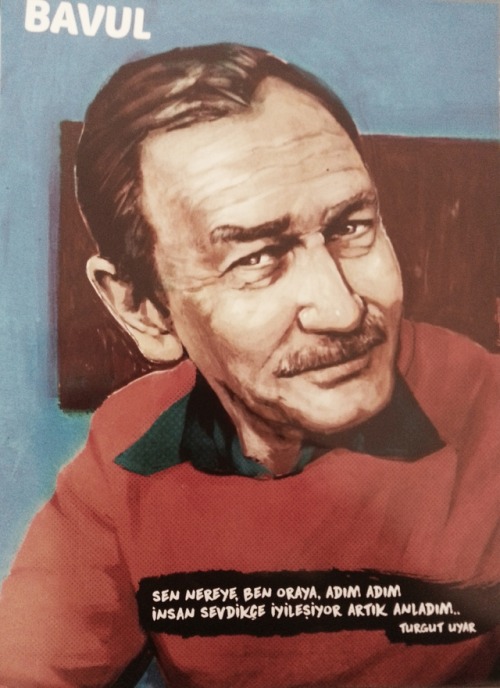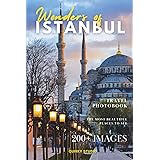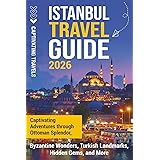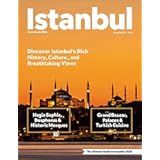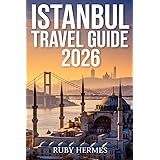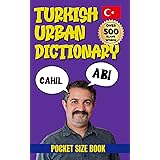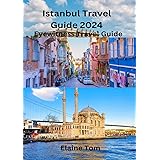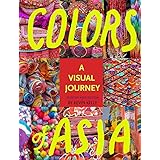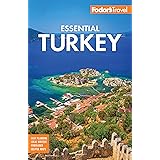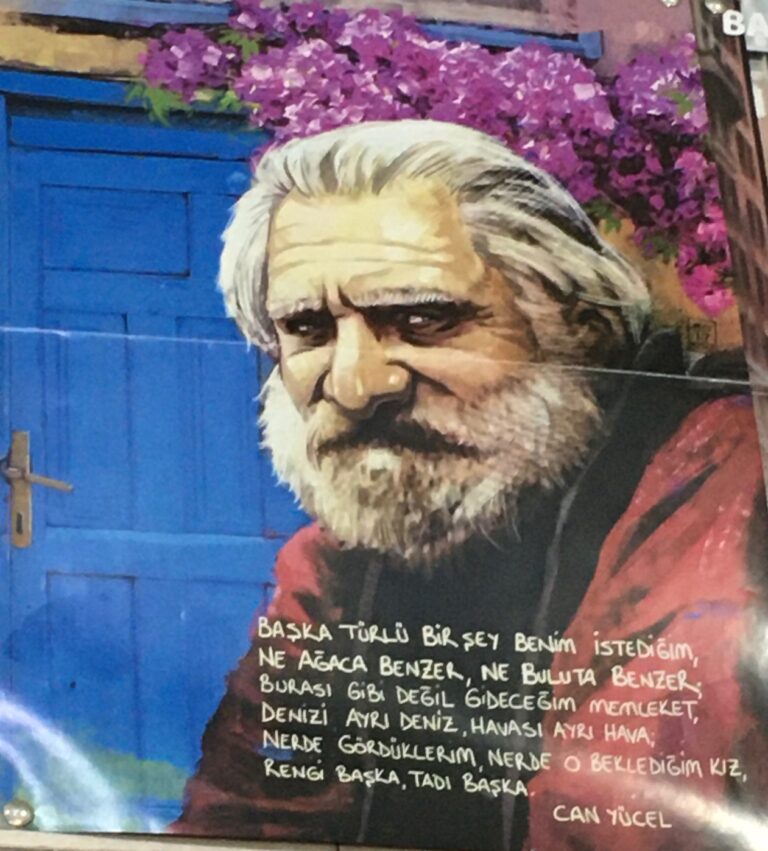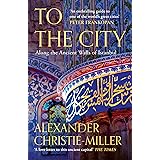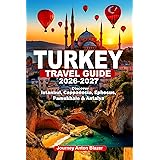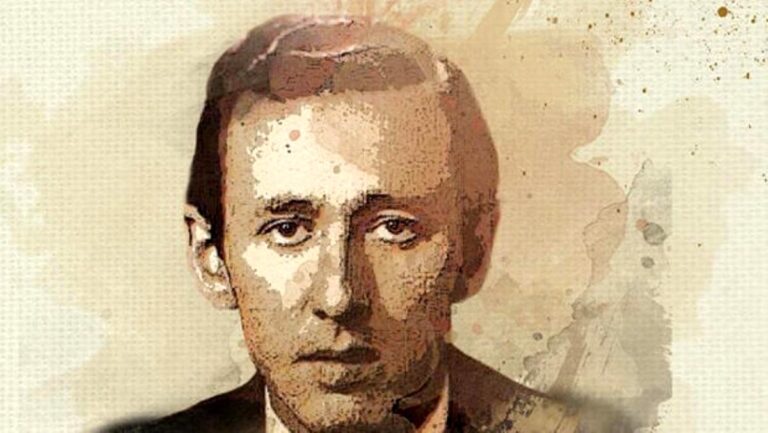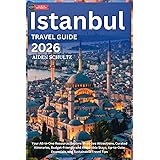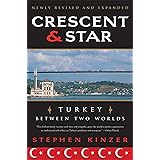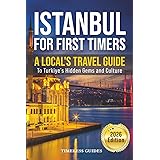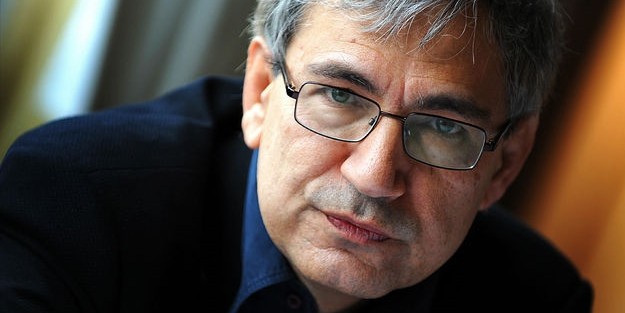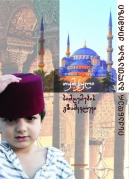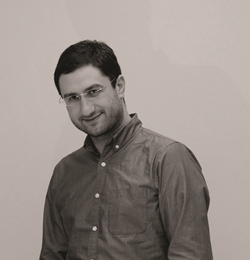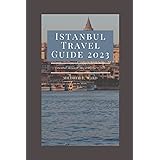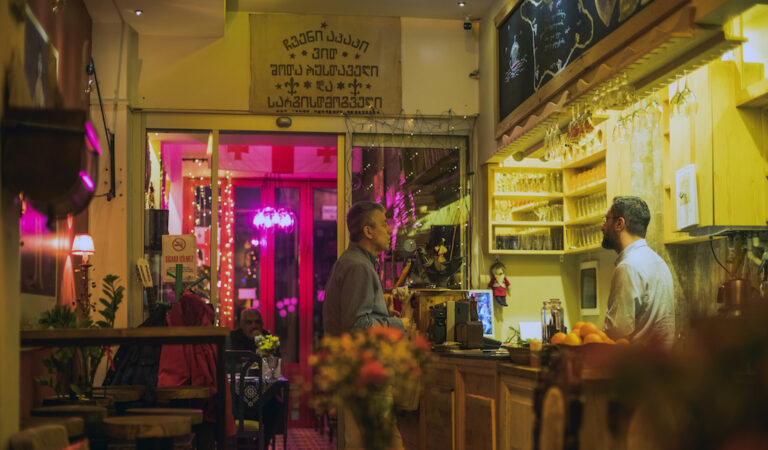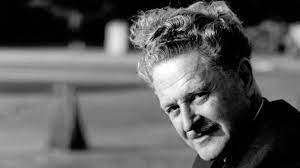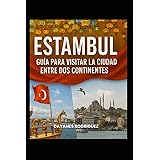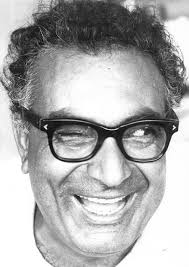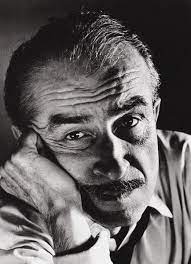Turkish Literature: Poets: Can Yücel
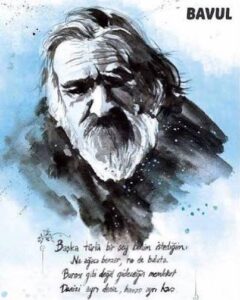
Istanbul Travel Guide 2024: Eyewitness Travel Guide
$12.99 (as of 08/02/2026 22:15 GMT +03:00 - More infoProduct prices and availability are accurate as of the date/time indicated and are subject to change. Any price and availability information displayed on [relevant Amazon Site(s), as applicable] at the time of purchase will apply to the purchase of this product.)To The City: Life and Death Along the Ancient Walls of Istanbul
$10.01 (as of 08/02/2026 22:15 GMT +03:00 - More infoProduct prices and availability are accurate as of the date/time indicated and are subject to change. Any price and availability information displayed on [relevant Amazon Site(s), as applicable] at the time of purchase will apply to the purchase of this product.)Rick Steves Istanbul: With Ephesus & Cappadocia
$3.38 (as of 08/02/2026 22:15 GMT +03:00 - More infoProduct prices and availability are accurate as of the date/time indicated and are subject to change. Any price and availability information displayed on [relevant Amazon Site(s), as applicable] at the time of purchase will apply to the purchase of this product.)Istanbul, City map 1:10.000, City Pocket map + The Big Five
$11.95 (as of 08/02/2026 22:15 GMT +03:00 - More infoProduct prices and availability are accurate as of the date/time indicated and are subject to change. Any price and availability information displayed on [relevant Amazon Site(s), as applicable] at the time of purchase will apply to the purchase of this product.)DK Eyewitness Travel Guide Istanbul (Eyewitness Travel Guides)
$10.20 (as of 08/02/2026 22:15 GMT +03:00 - More infoProduct prices and availability are accurate as of the date/time indicated and are subject to change. Any price and availability information displayed on [relevant Amazon Site(s), as applicable] at the time of purchase will apply to the purchase of this product.)TURKEY TRAVEL GUIDE 2026-2027: Discover Istanbul, Cappadocia, Ephesus, Pamukhale & Antalya: Local Secrets, Expert Tips, Hidden Gems, Cultural Insights, and Smart Itineraries
$5.99 (as of 08/02/2026 22:15 GMT +03:00 - More infoProduct prices and availability are accurate as of the date/time indicated and are subject to change. Any price and availability information displayed on [relevant Amazon Site(s), as applicable] at the time of purchase will apply to the purchase of this product.)The Mini Rough Guide to Istanbul and the Aegean Coast: Travel Guide with eBook
$9.34 (as of 08/02/2026 22:15 GMT +03:00 - More infoProduct prices and availability are accurate as of the date/time indicated and are subject to change. Any price and availability information displayed on [relevant Amazon Site(s), as applicable] at the time of purchase will apply to the purchase of this product.)Wallpaper* City Guide Istanbul 2014
$11.95 (as of 08/02/2026 22:15 GMT +03:00 - More infoProduct prices and availability are accurate as of the date/time indicated and are subject to change. Any price and availability information displayed on [relevant Amazon Site(s), as applicable] at the time of purchase will apply to the purchase of this product.)On Foot to the Golden Horn: A Walk to Istanbul
$3.99 (as of 08/02/2026 22:15 GMT +03:00 - More infoProduct prices and availability are accurate as of the date/time indicated and are subject to change. Any price and availability information displayed on [relevant Amazon Site(s), as applicable] at the time of purchase will apply to the purchase of this product.)DK Eyewitness Istanbul (Travel Guide)
$9.59 (as of 08/02/2026 22:15 GMT +03:00 - More infoProduct prices and availability are accurate as of the date/time indicated and are subject to change. Any price and availability information displayed on [relevant Amazon Site(s), as applicable] at the time of purchase will apply to the purchase of this product.)Istanbul, City map 1:10.000, City Pocket map + The Big Five
$11.95 (as of 08/02/2026 22:22 GMT +03:00 - More infoProduct prices and availability are accurate as of the date/time indicated and are subject to change. Any price and availability information displayed on [relevant Amazon Site(s), as applicable] at the time of purchase will apply to the purchase of this product.)Wonders of Istanbul: A Photo Collection of the City’s Most Beautiful Places to See – A Stunning Coffee Table Travel Photobook
$12.99 (as of 08/02/2026 22:22 GMT +03:00 - More infoProduct prices and availability are accurate as of the date/time indicated and are subject to change. Any price and availability information displayed on [relevant Amazon Site(s), as applicable] at the time of purchase will apply to the purchase of this product.)Istanbul: The Imperial City
$6.39 (as of 08/02/2026 22:22 GMT +03:00 - More infoProduct prices and availability are accurate as of the date/time indicated and are subject to change. Any price and availability information displayed on [relevant Amazon Site(s), as applicable] at the time of purchase will apply to the purchase of this product.)Lonely Planet Turkiye (Travel Guide)
$12.77 (as of 08/02/2026 22:22 GMT +03:00 - More infoProduct prices and availability are accurate as of the date/time indicated and are subject to change. Any price and availability information displayed on [relevant Amazon Site(s), as applicable] at the time of purchase will apply to the purchase of this product.)Colors of Asia: A Visual Journey
$34.00 (as of 08/02/2026 22:22 GMT +03:00 - More infoProduct prices and availability are accurate as of the date/time indicated and are subject to change. Any price and availability information displayed on [relevant Amazon Site(s), as applicable] at the time of purchase will apply to the purchase of this product.)Istanbul: City of Majesty at the Crossroads of the World
$5.92 (as of 08/02/2026 22:22 GMT +03:00 - More infoProduct prices and availability are accurate as of the date/time indicated and are subject to change. Any price and availability information displayed on [relevant Amazon Site(s), as applicable] at the time of purchase will apply to the purchase of this product.)Lonely Planet Istanbul (Travel Guide)
$5.98 (as of 08/02/2026 22:22 GMT +03:00 - More infoProduct prices and availability are accurate as of the date/time indicated and are subject to change. Any price and availability information displayed on [relevant Amazon Site(s), as applicable] at the time of purchase will apply to the purchase of this product.)Lonely Planet Turkey (Travel Guide)
$2.50 (as of 08/02/2026 22:22 GMT +03:00 - More infoProduct prices and availability are accurate as of the date/time indicated and are subject to change. Any price and availability information displayed on [relevant Amazon Site(s), as applicable] at the time of purchase will apply to the purchase of this product.)Fodor's Essential Turkey (Full-color Travel Guide)
$3.38 (as of 08/02/2026 22:22 GMT +03:00 - More infoProduct prices and availability are accurate as of the date/time indicated and are subject to change. Any price and availability information displayed on [relevant Amazon Site(s), as applicable] at the time of purchase will apply to the purchase of this product.)The Amazing Mrs. Pollifax (Mrs. Pollifax Series Book 2)
$5.99 (as of 08/02/2026 22:22 GMT +03:00 - More infoProduct prices and availability are accurate as of the date/time indicated and are subject to change. Any price and availability information displayed on [relevant Amazon Site(s), as applicable] at the time of purchase will apply to the purchase of this product.)Turkish Literature: Poets: Orhan Veli Kanık
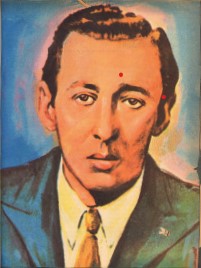
Rick Steves Istanbul: With Ephesus & Cappadocia
$3.38 (as of 08/02/2026 22:15 GMT +03:00 - More infoProduct prices and availability are accurate as of the date/time indicated and are subject to change. Any price and availability information displayed on [relevant Amazon Site(s), as applicable] at the time of purchase will apply to the purchase of this product.)TURKEY TRAVEL GUIDE 2026-2027: Discover Istanbul, Cappadocia, Ephesus, Pamukhale & Antalya: Local Secrets, Expert Tips, Hidden Gems, Cultural Insights, and Smart Itineraries
$5.99 (as of 08/02/2026 22:15 GMT +03:00 - More infoProduct prices and availability are accurate as of the date/time indicated and are subject to change. Any price and availability information displayed on [relevant Amazon Site(s), as applicable] at the time of purchase will apply to the purchase of this product.)The Mini Rough Guide to Istanbul and the Aegean Coast: Travel Guide with eBook
$9.34 (as of 08/02/2026 22:15 GMT +03:00 - More infoProduct prices and availability are accurate as of the date/time indicated and are subject to change. Any price and availability information displayed on [relevant Amazon Site(s), as applicable] at the time of purchase will apply to the purchase of this product.)Istanbul Travel Guide 2026: The Updated Companion to Experience Turkey's Best-Kept Secrets with Practical Itineraries, Detailed Maps, Bucket Hacks & Hidden Gems
$16.99 (as of 08/02/2026 22:15 GMT +03:00 - More infoProduct prices and availability are accurate as of the date/time indicated and are subject to change. Any price and availability information displayed on [relevant Amazon Site(s), as applicable] at the time of purchase will apply to the purchase of this product.)On Foot to the Golden Horn: A Walk to Istanbul
$3.99 (as of 08/02/2026 22:15 GMT +03:00 - More infoProduct prices and availability are accurate as of the date/time indicated and are subject to change. Any price and availability information displayed on [relevant Amazon Site(s), as applicable] at the time of purchase will apply to the purchase of this product.)DK Top 10 Istanbul (Pocket Travel Guide)
$11.39 (as of 08/02/2026 22:15 GMT +03:00 - More infoProduct prices and availability are accurate as of the date/time indicated and are subject to change. Any price and availability information displayed on [relevant Amazon Site(s), as applicable] at the time of purchase will apply to the purchase of this product.)Wonders of Istanbul: A Photo Collection of the City’s Most Beautiful Places to See – A Stunning Coffee Table Travel Photobook
$12.99 (as of 08/02/2026 22:15 GMT +03:00 - More infoProduct prices and availability are accurate as of the date/time indicated and are subject to change. Any price and availability information displayed on [relevant Amazon Site(s), as applicable] at the time of purchase will apply to the purchase of this product.)To The City: Life and Death Along the Ancient Walls of Istanbul
$10.01 (as of 08/02/2026 22:15 GMT +03:00 - More infoProduct prices and availability are accurate as of the date/time indicated and are subject to change. Any price and availability information displayed on [relevant Amazon Site(s), as applicable] at the time of purchase will apply to the purchase of this product.)Istanbul Travel Guide 2026: Your All-in-One Resource: Explore Must-See Attractions, Curated Itineraries, Budget-Friendly and Accessible Stays, Up-to-Date Essentials, and Sustainable Travel Tips
$15.99 (as of 08/02/2026 22:15 GMT +03:00 - More infoProduct prices and availability are accurate as of the date/time indicated and are subject to change. Any price and availability information displayed on [relevant Amazon Site(s), as applicable] at the time of purchase will apply to the purchase of this product.)ISTANBUL TRAVEL GUIDE 2026 (Full-Color): From Hagia Sophia to the Spice Bazaar, Bosphorus to Topkapi Palace, Experience the History, Food, Art, Shopping, ... and Adventures of This Timeless City
$7.99 (as of 08/02/2026 22:15 GMT +03:00 - More infoProduct prices and availability are accurate as of the date/time indicated and are subject to change. Any price and availability information displayed on [relevant Amazon Site(s), as applicable] at the time of purchase will apply to the purchase of this product.)Collins Turkish Phrasebook and Dictionary Gem Edition (Collins Gem)
$0.99 (as of 08/02/2026 22:22 GMT +03:00 - More infoProduct prices and availability are accurate as of the date/time indicated and are subject to change. Any price and availability information displayed on [relevant Amazon Site(s), as applicable] at the time of purchase will apply to the purchase of this product.)Crescent and Star: Turkey Between Two Worlds
$6.49 (as of 08/02/2026 22:22 GMT +03:00 - More infoProduct prices and availability are accurate as of the date/time indicated and are subject to change. Any price and availability information displayed on [relevant Amazon Site(s), as applicable] at the time of purchase will apply to the purchase of this product.)The Turkish Cookbook
$42.79 (as of 08/02/2026 22:22 GMT +03:00 - More infoProduct prices and availability are accurate as of the date/time indicated and are subject to change. Any price and availability information displayed on [relevant Amazon Site(s), as applicable] at the time of purchase will apply to the purchase of this product.)Lonely Planet Istanbul (Travel Guide)
$5.98 (as of 08/02/2026 22:22 GMT +03:00 - More infoProduct prices and availability are accurate as of the date/time indicated and are subject to change. Any price and availability information displayed on [relevant Amazon Site(s), as applicable] at the time of purchase will apply to the purchase of this product.)Istanbul: Memories and the City (Vintage International)
$5.68 (as of 08/02/2026 22:22 GMT +03:00 - More infoProduct prices and availability are accurate as of the date/time indicated and are subject to change. Any price and availability information displayed on [relevant Amazon Site(s), as applicable] at the time of purchase will apply to the purchase of this product.)Istanbul: City of Majesty at the Crossroads of the World
$5.92 (as of 08/02/2026 22:22 GMT +03:00 - More infoProduct prices and availability are accurate as of the date/time indicated and are subject to change. Any price and availability information displayed on [relevant Amazon Site(s), as applicable] at the time of purchase will apply to the purchase of this product.)Learn Turkish in 100 Days: The 100% Natural Method to Finally Get Results with Turkish! (For Beginners)
$9.99 (as of 08/02/2026 22:22 GMT +03:00 - More infoProduct prices and availability are accurate as of the date/time indicated and are subject to change. Any price and availability information displayed on [relevant Amazon Site(s), as applicable] at the time of purchase will apply to the purchase of this product.)Lonely Planet Turkey (Travel Guide)
$2.50 (as of 08/02/2026 22:22 GMT +03:00 - More infoProduct prices and availability are accurate as of the date/time indicated and are subject to change. Any price and availability information displayed on [relevant Amazon Site(s), as applicable] at the time of purchase will apply to the purchase of this product.)Lonely Planet Turkiye (Travel Guide)
$12.77 (as of 08/02/2026 22:22 GMT +03:00 - More infoProduct prices and availability are accurate as of the date/time indicated and are subject to change. Any price and availability information displayed on [relevant Amazon Site(s), as applicable] at the time of purchase will apply to the purchase of this product.)Istanbul For First Timers: A Local's Travel Guide To Turkiye's Hidden Gems and Culture
$15.99 (as of 08/02/2026 22:22 GMT +03:00 - More infoProduct prices and availability are accurate as of the date/time indicated and are subject to change. Any price and availability information displayed on [relevant Amazon Site(s), as applicable] at the time of purchase will apply to the purchase of this product.)Turkish Literature: Internationally Prized Turkish Authors: Orhan Pamuk
Novelist (b. 1952, İstanbul).
Ferit Orhan Pamuk (born 7 June 1952) is a Turkish novelist, screenwriter, academic and recipient of the 2006 Nobel Prize in Literature. One of Turkey’s most prominent novelists, his work has sold over thirteen million books in sixty-three languages, making him the country’s best-selling writer.
He was brought up in Nişantaşı. He attended Robert College (1970) in İstanbul and then İstanbul Technical University, Faculty of Architecture for some time. He graduated from İstanbul University, Institute of Journalism (1977). He did his postgraduate studies at the institute he graduated from. At twenty two, he gave up everything and took up writing as his sole occupation.
Novels (English)
The White Castle, translated by Victoria Holbrook, Manchester (UK): Carcanet Press Limited, 1990; 1991; New York: George Braziller, 1991 [original title: Beyaz Kale]
The Black Book, translated by Güneli Gün, New York: Farrar, Straus & Giroux, 1994 [original title: Kara Kitap]. (A new translation by Maureen Freely was published in 2006)
The New Life, translated by Güneli Gün, New York: Farrar, Straus & Giroux, 1997 [original title: Yeni Hayat]
My Name Is Red, translated by Erdağ M. Göknar, New York: Alfred A. Knopf, 2001 [original title: Benim Adım Kırmızı].
Snow, translated by Maureen Freely, New York: Alfred A. Knopf, 2004 [original title: Kar]
The Museum of Innocence, translated by Maureen Freely, New York: Alfred A. Knopf, was released on 20 October 2009 [original title: Masumiyet Müzesi]
Silent House, translated by Robert Finn, New York: Alfred A. Knopf, 2012 [original title: Sessiz Ev]
A Strangeness in My Mind, translated by Ekin Oklap, New York: Alfred A. Knopf, 2015 [original title: Kafamda Bir Tuhaflık]
The Red-Haired Woman, translated by Ekin Oklap, New York: Alfred A. Knopf, 2017 [original title: Kırmızı saçlı kadın]
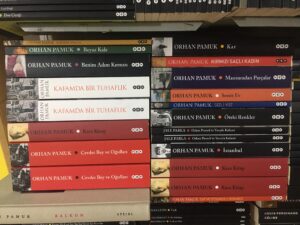
Non-fiction (English)
Istanbul: Memories and the City, translated by Maureen Freely, New York: Alfred A. Knopf, 2005 [original title: İstanbul: Hatıralar ve Şehir]
My Father’s Suitcase [original title: Babamın Bavulu] Nobel lecture
Other Colors: Essays and a Story, translated by Maureen Freely, New York: Alfred A. Knopf, 2007 [original title: Öteki Renkler][87]
The Innocence of Objects [original title: Şeylerin Masumiyeti]
The Naive and Sentimental Novelist, Harvard University Press, 2010
Balkon, Steidl Publisher, 2019
Turkish
Novels
Cevdet Bey ve Oğulları (Cevdet Bey and His Sons), novel, Istanbul: Karacan Yayınları, 1982
Sessiz Ev (Silent House), novel, Istanbul: Can Yayınları, 1983
Beyaz Kale (The White Castle), novel, Istanbul: Can Yayınları, 1985
Kara Kitap (The Black Book), novel, Istanbul: Can Yayınları, 1990
Yeni Hayat (The New Life), novel, Istanbul: İletişim Yayınları, 1994
Benim Adım Kırmızı (My Name is Red), novel, Istanbul: İletişim Yayınları, 1998
Kar (Snow), novel, Istanbul: İletişim Yayınları, 2002
Masumiyet Müzesi (The Museum of Innocence), novel, Istanbul: İletişim Yayınları, 2008
Kafamda Bir Tuhaflık (A Strangeness in My Mind), novel, Istanbul: Yapı Kredi Publications, 2014
Kırmızı Saçlı Kadın, (The Red-Haired Woman), novel, Yapı Kredi Yayınları, 2016
Veba Geceleri (tr,): “Nights of Plague” (2021)[88]
Fathers, Mothers and Sons : Cevdet Bey and Sons; The Silent House; The Red-Haired Woman (“Delta” Omnibüs, Novels volume I), Yapı Kredi Yayınları, 2018
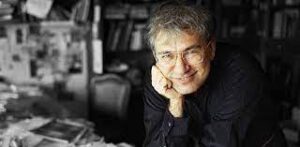
Other Works
Gizli Yüz (Secret Face), screenplay, Istanbul: Can Yayınları, 1992
Öteki Renkler (Other Colours), essays, Istanbul: İletişim Yayınları, 1999
İstanbul: Hatıralar ve Şehir (Istanbul: Memories and the City), memoirs, Istanbul: Yapı Kredi Yayınları, 2003
Babamın Bavulu (My Father’s Suitcase), Nobel Söylevi, İstanbul, İletişim Yayınları, 2007
Manzaradan Parçalar: Hayat, Sokaklar, Edebiyat (Pieces from the View: Life, Streets, Literature), essays, Istanbul: İletişim Yayınları, 2010
Saf ve Düşünceli Romancı (“Naive and Sentimental Novelist”) literary criticism, İstanbul: İletişim Yayınları, 2011
Şeylerin Masumiyeti (The Innocence of Objects), Masumiyet Müzesi Kataloğu, İletişim Yayınları 2012
Resimli İstanbul – Hatıralar ve Şehir, memoir, Yapı Kredi Yayınları, 2015
Hatıraların Masumiyeti, scripts and essays, Yapı Kredi Yayınları, 2016
Balkon, (Introduction and photographs), Yapı Kredi Yayınları, 2018
Orange, (Introduction and Photographs), Yapi Kredi Yayınları, 192 pages, 350 images, 2020
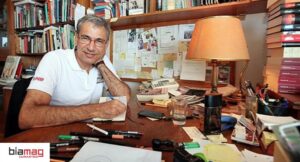
Quotes
“I read a book one day and my whole life was changed.”
— Orhan Pamuk (The New Life)
“Happiness is holding someone in your arms and knowing you hold the whole world.”
— Orhan Pamuk (Snow)
“I don’t want to be a tree; I want to be its meaning.”
— Orhan Pamuk (My Name Is Red)
“How much can we ever know about the love and pain in another heart? How much can we hope to understand those who have suffered deeper anguish, greater deprivation, and more crushing disappointments than we ourselves have known?”
— Orhan Pamuk (Snow)
“Dogs do speak, but only to those who know how to listen.”
— Orhan Pamuk (My Name Is Red)
“Tell me then, does love make one a fool or do only fools fall in love?”
— Orhan Pamuk (My Name Is Red)
“Painting is the silence of thought and the music of sight.”
— Orhan Pamuk (My Name Is Red)
“The first thing I learned at school was that some people are idiots; the second thing I learned was that some are even worse.”
— Orhan Pamuk (Istanbul: Memories and the City)
“Books, which we mistake for consolation, only add depth to our sorrow. ”
— Orhan Pamuk (My Name Is Red)
“Real museums are places where Time is transformed into Space.”
— Orhan Pamuk (The Museum of Innocence)
“In fact no one recognizes the happiest moment of their lives as they are living it. It may well be that, in a moment of joy, one might sincerely believe that they are living that golden instant “now,” even having lived such a moment before, but whatever they say, in one part of their hearts they still believe in the certainty of a happier moment to come. Because how could anyone, and particularly anyone who is still young, carry on with the belief that everything could only get worse: If a person is happy enough to think he has reached the happiest moment of his life, he will be hopeful enough to believe his future will be just as beautiful, more so.”
— Orhan Pamuk (The Museum of Innocence)
“After all, a woman who doesn’t love cats is never going to be make a man happy.”
— Orhan Pamuk (The Museum of Innocence)
“There are two kind of men,’ said Ka, in a didatic voice. ‘The first kind does not fall in love until he’s seen how the girls eats a sandwich, how she combs her hair, what sort of nonsense she cares about, why she’s angry at her father, and what sort of stories people tell about her. The second type of man — and I am in this category — can fall in love with a woman only if he knows next to nothing about her.”
— Orhan Pamuk (Snow)
“My unhappiness protects me from life.”
— Orhan Pamuk
“Any intelligent person knows that life is a beautiful thing and that the purpose of life is to be happy,” said my father as he watched the three beauties. “But it seems only idiots are ever happy. How can we explain this?”
— Orhan Pamuk (The Museum of Innocence)
“The beauty and mystery of this world only emerges through affection, attention, interest and compassion . . . open your eyes wide and actually see this world by attending to its colors, details and irony.”
— Orhan Pamuk (My Name Is Red)
“People only tell lies when there is something they are terribly frightened of losing.”
— Orhan Pamuk (The Museum of Innocence)
“When you love a city and have explored it frequently on foot, your body, not to mention your soul, gets to know the streets so well after a number of years that in a fit of melancholy, perhaps stirred by a light snow falling ever so sorrowfully, you’ll discover your legs carrying you of their own accord toward one of your favourite promontories”
— Orhan Pamuk (My Name Is Red)
“As much as I live I shall not imitate them or hate myself for being different to them”
— Orhan Pamuk (Snow)
“Sometimes I sensed that the books I read in rapid succession had set up some sort of murmur among themselves, transforming my head into an orchestra pit where different musical instruments sounded out, and I would realize that I could endure this life because of these musicales going on in my head.”
— Orhan Pamuk (The New Life)
Lonely Planet Pocket Istanbul (Pocket Guide)
$11.34 (as of 08/02/2026 22:15 GMT +03:00 - More infoProduct prices and availability are accurate as of the date/time indicated and are subject to change. Any price and availability information displayed on [relevant Amazon Site(s), as applicable] at the time of purchase will apply to the purchase of this product.)Istanbul Travel Guide 2024: Eyewitness Travel Guide
$12.99 (as of 08/02/2026 22:15 GMT +03:00 - More infoProduct prices and availability are accurate as of the date/time indicated and are subject to change. Any price and availability information displayed on [relevant Amazon Site(s), as applicable] at the time of purchase will apply to the purchase of this product.)Istanbul Travel Guide 2026: The Updated Companion to Experience Turkey's Best-Kept Secrets with Practical Itineraries, Detailed Maps, Bucket Hacks & Hidden Gems
$16.99 (as of 08/02/2026 22:15 GMT +03:00 - More infoProduct prices and availability are accurate as of the date/time indicated and are subject to change. Any price and availability information displayed on [relevant Amazon Site(s), as applicable] at the time of purchase will apply to the purchase of this product.)DK Top 10 Istanbul (Pocket Travel Guide)
$11.39 (as of 08/02/2026 22:15 GMT +03:00 - More infoProduct prices and availability are accurate as of the date/time indicated and are subject to change. Any price and availability information displayed on [relevant Amazon Site(s), as applicable] at the time of purchase will apply to the purchase of this product.)Istanbul For First Timers: A Local's Travel Guide To Turkiye's Hidden Gems and Culture
$15.99 (as of 08/02/2026 22:15 GMT +03:00 - More infoProduct prices and availability are accurate as of the date/time indicated and are subject to change. Any price and availability information displayed on [relevant Amazon Site(s), as applicable] at the time of purchase will apply to the purchase of this product.)On Foot to the Golden Horn: A Walk to Istanbul
$3.99 (as of 08/02/2026 22:15 GMT +03:00 - More infoProduct prices and availability are accurate as of the date/time indicated and are subject to change. Any price and availability information displayed on [relevant Amazon Site(s), as applicable] at the time of purchase will apply to the purchase of this product.)DK Eyewitness Istanbul (Travel Guide)
$9.59 (as of 08/02/2026 22:15 GMT +03:00 - More infoProduct prices and availability are accurate as of the date/time indicated and are subject to change. Any price and availability information displayed on [relevant Amazon Site(s), as applicable] at the time of purchase will apply to the purchase of this product.)Lonely Planet Istanbul (Travel Guide)
$5.98 (as of 08/02/2026 22:15 GMT +03:00 - More infoProduct prices and availability are accurate as of the date/time indicated and are subject to change. Any price and availability information displayed on [relevant Amazon Site(s), as applicable] at the time of purchase will apply to the purchase of this product.)Wallpaper* City Guide Istanbul 2014
$11.95 (as of 08/02/2026 22:15 GMT +03:00 - More infoProduct prices and availability are accurate as of the date/time indicated and are subject to change. Any price and availability information displayed on [relevant Amazon Site(s), as applicable] at the time of purchase will apply to the purchase of this product.)Turkish Urban Dictionary: 500 Slang Words & Phrases to Speak Like a Local in Turkey (Urban Slang Dictionary)
$17.90 (as of 08/02/2026 22:15 GMT +03:00 - More infoProduct prices and availability are accurate as of the date/time indicated and are subject to change. Any price and availability information displayed on [relevant Amazon Site(s), as applicable] at the time of purchase will apply to the purchase of this product.)Fodor's Essential Turkey (Full-color Travel Guide)
$16.76 (as of 08/02/2026 22:22 GMT +03:00 - More infoProduct prices and availability are accurate as of the date/time indicated and are subject to change. Any price and availability information displayed on [relevant Amazon Site(s), as applicable] at the time of purchase will apply to the purchase of this product.)Conversational Turkish Dialogues: Over 100 Turkish Conversations and Short Stories (Conversational Turkish Dual Language Books)
$6.40 (as of 08/02/2026 22:22 GMT +03:00 - More infoProduct prices and availability are accurate as of the date/time indicated and are subject to change. Any price and availability information displayed on [relevant Amazon Site(s), as applicable] at the time of purchase will apply to the purchase of this product.)Istanbul: Memories and the City (Vintage International)
$5.68 (as of 08/02/2026 22:22 GMT +03:00 - More infoProduct prices and availability are accurate as of the date/time indicated and are subject to change. Any price and availability information displayed on [relevant Amazon Site(s), as applicable] at the time of purchase will apply to the purchase of this product.)Istanbul: City of Majesty at the Crossroads of the World
$5.92 (as of 08/02/2026 22:22 GMT +03:00 - More infoProduct prices and availability are accurate as of the date/time indicated and are subject to change. Any price and availability information displayed on [relevant Amazon Site(s), as applicable] at the time of purchase will apply to the purchase of this product.)Istanbul: The Imperial City
$6.39 (as of 08/02/2026 22:22 GMT +03:00 - More infoProduct prices and availability are accurate as of the date/time indicated and are subject to change. Any price and availability information displayed on [relevant Amazon Site(s), as applicable] at the time of purchase will apply to the purchase of this product.)Lonely Planet Pocket Istanbul (Pocket Guide)
$11.34 (as of 08/02/2026 22:22 GMT +03:00 - More infoProduct prices and availability are accurate as of the date/time indicated and are subject to change. Any price and availability information displayed on [relevant Amazon Site(s), as applicable] at the time of purchase will apply to the purchase of this product.)Istanbul For First Timers: A Local's Travel Guide To Turkiye's Hidden Gems and Culture
$15.99 (as of 08/02/2026 22:22 GMT +03:00 - More infoProduct prices and availability are accurate as of the date/time indicated and are subject to change. Any price and availability information displayed on [relevant Amazon Site(s), as applicable] at the time of purchase will apply to the purchase of this product.)Rick Steves Istanbul: With Ephesus & Cappadocia
$15.21 (as of 08/02/2026 22:22 GMT +03:00 - More infoProduct prices and availability are accurate as of the date/time indicated and are subject to change. Any price and availability information displayed on [relevant Amazon Site(s), as applicable] at the time of purchase will apply to the purchase of this product.)LYCIAN WAY HIKING GUIDE
$16.99 (as of 08/02/2026 22:22 GMT +03:00 - More infoProduct prices and availability are accurate as of the date/time indicated and are subject to change. Any price and availability information displayed on [relevant Amazon Site(s), as applicable] at the time of purchase will apply to the purchase of this product.)Türkiye (Turkey): Mediterranean Coast Map (National Geographic Adventure Map, 3019)
$14.95 (as of 08/02/2026 22:22 GMT +03:00 - More infoProduct prices and availability are accurate as of the date/time indicated and are subject to change. Any price and availability information displayed on [relevant Amazon Site(s), as applicable] at the time of purchase will apply to the purchase of this product.)Books by Irakli Kakabadze, Georgian Writer Living in Istanbul…
- ISBN:
- 978-9941-446-23-8
- Category:
- Modern Georgian Prose
Iskander Baltazar Kirmiz is the pseudonym of the young writer Irakli Kakabadze. Over a cup of strong black tea, the author tells about the black and white sides of life: 30-year-old men still tied to their mums’ apron strings, the tradition of going to public baths, the old red tram in Istanbul, Turks living someone else’s lives, Turks that are given only one life by Allah, the life most of them waste in idle chats, natter and gossip.
 On the State Gallows Irakli Kakabadze
On the State Gallows Irakli Kakabadze Three DotsIrakli Kakabadze
Three DotsIrakli Kakabadze The Book of Exodus Irakli Kakabadze
The Book of Exodus Irakli Kakabadze Revelation Iaki Kabe, Irakli Kakabadze
Revelation Iaki Kabe, Irakli Kakabadze
EXIT BOOK

You are holding a novel in which the line between escaping death and escaping death has become blurred. The Exodus Book focuses on the story of the people who were caught in the middle of the war in Abkhazia, Georgia, which resulted in ethnic cleansing of the Georgians in the early 1990s, and who could not leave their homeland.
Iaki Kaaba drags the reader into the middle of this war that he went through when he was a small child, and brings them face to face with people whose houses were bombed, who were walking around hungry and who could not bury their dead.
EXIT BOOK Iaki Kaber ÇEV: Parna-Beka Chilashvili DEDALUS
Turkish Urban Dictionary: 500 Slang Words & Phrases to Speak Like a Local in Turkey (Urban Slang Dictionary)
$17.90 (as of 08/02/2026 22:15 GMT +03:00 - More infoProduct prices and availability are accurate as of the date/time indicated and are subject to change. Any price and availability information displayed on [relevant Amazon Site(s), as applicable] at the time of purchase will apply to the purchase of this product.)Rick Steves Istanbul: With Ephesus & Cappadocia
$3.38 (as of 08/02/2026 22:15 GMT +03:00 - More infoProduct prices and availability are accurate as of the date/time indicated and are subject to change. Any price and availability information displayed on [relevant Amazon Site(s), as applicable] at the time of purchase will apply to the purchase of this product.)Blue Guide Istanbul
$9.99 (as of 08/02/2026 22:15 GMT +03:00 - More infoProduct prices and availability are accurate as of the date/time indicated and are subject to change. Any price and availability information displayed on [relevant Amazon Site(s), as applicable] at the time of purchase will apply to the purchase of this product.)Lonely Planet Pocket Istanbul (Pocket Guide)
$11.34 (as of 08/02/2026 22:15 GMT +03:00 - More infoProduct prices and availability are accurate as of the date/time indicated and are subject to change. Any price and availability information displayed on [relevant Amazon Site(s), as applicable] at the time of purchase will apply to the purchase of this product.)Istanbul Travel Guide: Captivating Adventures Through Ottoman Splendor, Byzantine Wonders, Turkish Landmarks, Hidden Gems, and More (Traveling the World)
$18.69 (as of 08/02/2026 22:15 GMT +03:00 - More infoProduct prices and availability are accurate as of the date/time indicated and are subject to change. Any price and availability information displayed on [relevant Amazon Site(s), as applicable] at the time of purchase will apply to the purchase of this product.)Istanbul, City map 1:10.000, City Pocket map + The Big Five
$11.95 (as of 08/02/2026 22:15 GMT +03:00 - More infoProduct prices and availability are accurate as of the date/time indicated and are subject to change. Any price and availability information displayed on [relevant Amazon Site(s), as applicable] at the time of purchase will apply to the purchase of this product.)Istanbul Travel Guide 2026: The Updated Companion to Experience Turkey's Best-Kept Secrets with Practical Itineraries, Detailed Maps, Bucket Hacks & Hidden Gems
$16.99 (as of 08/02/2026 22:15 GMT +03:00 - More infoProduct prices and availability are accurate as of the date/time indicated and are subject to change. Any price and availability information displayed on [relevant Amazon Site(s), as applicable] at the time of purchase will apply to the purchase of this product.)DK Top 10 Istanbul (Pocket Travel Guide)
$11.39 (as of 08/02/2026 22:15 GMT +03:00 - More infoProduct prices and availability are accurate as of the date/time indicated and are subject to change. Any price and availability information displayed on [relevant Amazon Site(s), as applicable] at the time of purchase will apply to the purchase of this product.)DK Eyewitness Travel Guide Istanbul (Eyewitness Travel Guides)
$10.20 (as of 08/02/2026 22:15 GMT +03:00 - More infoProduct prices and availability are accurate as of the date/time indicated and are subject to change. Any price and availability information displayed on [relevant Amazon Site(s), as applicable] at the time of purchase will apply to the purchase of this product.)Crescent and Star: Turkey Between Two Worlds
$6.49 (as of 08/02/2026 22:15 GMT +03:00 - More infoProduct prices and availability are accurate as of the date/time indicated and are subject to change. Any price and availability information displayed on [relevant Amazon Site(s), as applicable] at the time of purchase will apply to the purchase of this product.)Istanbul, City map 1:10.000, City Pocket map + The Big Five
$11.95 (as of 08/02/2026 22:22 GMT +03:00 - More infoProduct prices and availability are accurate as of the date/time indicated and are subject to change. Any price and availability information displayed on [relevant Amazon Site(s), as applicable] at the time of purchase will apply to the purchase of this product.)Lonely Planet Turkey (Travel Guide)
$2.50 (as of 08/02/2026 22:22 GMT +03:00 - More infoProduct prices and availability are accurate as of the date/time indicated and are subject to change. Any price and availability information displayed on [relevant Amazon Site(s), as applicable] at the time of purchase will apply to the purchase of this product.)Lonely Planet Pocket Istanbul (Pocket Guide)
$11.34 (as of 08/02/2026 22:22 GMT +03:00 - More infoProduct prices and availability are accurate as of the date/time indicated and are subject to change. Any price and availability information displayed on [relevant Amazon Site(s), as applicable] at the time of purchase will apply to the purchase of this product.)DK Top 10 Istanbul (Pocket Travel Guide)
$11.39 (as of 08/02/2026 22:22 GMT +03:00 - More infoProduct prices and availability are accurate as of the date/time indicated and are subject to change. Any price and availability information displayed on [relevant Amazon Site(s), as applicable] at the time of purchase will apply to the purchase of this product.)The Amazing Mrs. Pollifax (Mrs. Pollifax Series Book 2)
$5.99 (as of 08/02/2026 22:22 GMT +03:00 - More infoProduct prices and availability are accurate as of the date/time indicated and are subject to change. Any price and availability information displayed on [relevant Amazon Site(s), as applicable] at the time of purchase will apply to the purchase of this product.)Collins Turkish Phrasebook and Dictionary Gem Edition (Collins Gem)
$0.99 (as of 08/02/2026 22:22 GMT +03:00 - More infoProduct prices and availability are accurate as of the date/time indicated and are subject to change. Any price and availability information displayed on [relevant Amazon Site(s), as applicable] at the time of purchase will apply to the purchase of this product.)Istanbul For First Timers: A Local's Travel Guide To Turkiye's Hidden Gems and Culture
$15.99 (as of 08/02/2026 22:22 GMT +03:00 - More infoProduct prices and availability are accurate as of the date/time indicated and are subject to change. Any price and availability information displayed on [relevant Amazon Site(s), as applicable] at the time of purchase will apply to the purchase of this product.)Istanbul: The Imperial City
$6.39 (as of 08/02/2026 22:22 GMT +03:00 - More infoProduct prices and availability are accurate as of the date/time indicated and are subject to change. Any price and availability information displayed on [relevant Amazon Site(s), as applicable] at the time of purchase will apply to the purchase of this product.)Türkiye (Turkey): Mediterranean Coast Map (National Geographic Adventure Map, 3019)
$14.95 (as of 08/02/2026 22:22 GMT +03:00 - More infoProduct prices and availability are accurate as of the date/time indicated and are subject to change. Any price and availability information displayed on [relevant Amazon Site(s), as applicable] at the time of purchase will apply to the purchase of this product.)Lonely Planet Turkiye (Travel Guide)
$12.77 (as of 08/02/2026 22:22 GMT +03:00 - More infoProduct prices and availability are accurate as of the date/time indicated and are subject to change. Any price and availability information displayed on [relevant Amazon Site(s), as applicable] at the time of purchase will apply to the purchase of this product.)Irakli Kakabadze, Georgian Poet in Istanbul, Turkey
Born 17 November 1982.
He studied at Tbilisi Spiritual Academy, Universities of Tbilisi and Petersburg. He teaches and is the editor of the journal Mastsavlebeli (Teacher) and of the internet paper Mastsavlebeli.ge.
He is the author of poetry and prose collections: Letters and Barbed-Wires (2010), Iaki Kabe – Poems (2012), On the State Gallows (2013), Iskander Baltazar Kirmiz – The Guide to Turkish Songs (2013), Three Dots (2015), The Book of Exodus (2018), Revelation (2019)
In 2018 he translated the collection of poems “Istanbul Travel Guide” by Turkish writer Rumuz Derinoz, who is a descendant of Georgian Muhajirs.
His poems written under the name Iaki Kabe was the 2013 bestseller. His works are translated into the Turkish, Lithuanian, Russian, French and Belorussian languages. He has participated in numerous literary festivals and programmes and is actively involved in defending human rights and freedom of speech.
At present he lives in the art and culture capital of Turkey, Istanbul, where he founded Georgian Culture Center – “Galaktioni” and the Association of Georgian Countrymen in Turkey. He teaches Georgian language in several educational institutions.
The poet Irakli Kakabadze is the author of four collections of poetry and one book of short stories. For several years he worked in the public sector, specifically at the National Center for Teacher Development in Tbilisi, a legal entity under the Ministry of Education and Science in Georgia. Following his first appearance on the creative scene, while still a civil servant, he rapidly made a name for himself as a passionate social activist and an indefatigable defender of human rights and freedom of speech, and these are precisely the topics he deals with in his work.
Even while still employed by the civil service, he never shied away from harsh criticism of the state and the Georgian Orthodox Church, but eventually, due to the impossibility of reconciling his work for the government with his activism, he was forced to leave his homeland for Turkey.
Kakabadze now lives in Istanbul. He owns a café called Café Galaktion, named after the great Georgian poet Galaktion Tabidze, and spends the rest of his time popularizing Georgian culture throughout Turkey, teaching Georgian to ethnic Georgians living in Turkey, and responding through his writing to controversies back home.
Kakabaze is the only famous Georgian writer living in Istanbul. He tries to connect Georgian and Turkish, these two neighboring peoples more closely through culture and literature.
Rick Steves Istanbul: With Ephesus & Cappadocia
$3.38 (as of 08/02/2026 22:15 GMT +03:00 - More infoProduct prices and availability are accurate as of the date/time indicated and are subject to change. Any price and availability information displayed on [relevant Amazon Site(s), as applicable] at the time of purchase will apply to the purchase of this product.)Crescent and Star: Turkey Between Two Worlds
$6.49 (as of 08/02/2026 22:15 GMT +03:00 - More infoProduct prices and availability are accurate as of the date/time indicated and are subject to change. Any price and availability information displayed on [relevant Amazon Site(s), as applicable] at the time of purchase will apply to the purchase of this product.)Wallpaper* City Guide Istanbul 2014
$11.95 (as of 08/02/2026 22:15 GMT +03:00 - More infoProduct prices and availability are accurate as of the date/time indicated and are subject to change. Any price and availability information displayed on [relevant Amazon Site(s), as applicable] at the time of purchase will apply to the purchase of this product.)Lonely Planet Istanbul (Travel Guide)
$5.98 (as of 08/02/2026 22:15 GMT +03:00 - More infoProduct prices and availability are accurate as of the date/time indicated and are subject to change. Any price and availability information displayed on [relevant Amazon Site(s), as applicable] at the time of purchase will apply to the purchase of this product.)Rick Stein: From Venice to Istanbul: Discovering the Flavours of the Eastern Mediterranean
$14.99 (as of 08/02/2026 22:15 GMT +03:00 - More infoProduct prices and availability are accurate as of the date/time indicated and are subject to change. Any price and availability information displayed on [relevant Amazon Site(s), as applicable] at the time of purchase will apply to the purchase of this product.)Istanbul Travel Guide 2023: The Updated Travel Guide (The Tourist's Guide)
$12.99 (as of 08/02/2026 22:15 GMT +03:00 - More infoProduct prices and availability are accurate as of the date/time indicated and are subject to change. Any price and availability information displayed on [relevant Amazon Site(s), as applicable] at the time of purchase will apply to the purchase of this product.)Istanbul Travel Guide: Captivating Adventures Through Ottoman Splendor, Byzantine Wonders, Turkish Landmarks, Hidden Gems, and More (Traveling the World)
$18.69 (as of 08/02/2026 22:15 GMT +03:00 - More infoProduct prices and availability are accurate as of the date/time indicated and are subject to change. Any price and availability information displayed on [relevant Amazon Site(s), as applicable] at the time of purchase will apply to the purchase of this product.)DK Eyewitness Travel Guide Istanbul (Eyewitness Travel Guides)
$10.20 (as of 08/02/2026 22:15 GMT +03:00 - More infoProduct prices and availability are accurate as of the date/time indicated and are subject to change. Any price and availability information displayed on [relevant Amazon Site(s), as applicable] at the time of purchase will apply to the purchase of this product.)Istanbul Travel Guide 2026: The Updated Companion to Experience Turkey's Best-Kept Secrets with Practical Itineraries, Detailed Maps, Bucket Hacks & Hidden Gems
$16.99 (as of 08/02/2026 22:15 GMT +03:00 - More infoProduct prices and availability are accurate as of the date/time indicated and are subject to change. Any price and availability information displayed on [relevant Amazon Site(s), as applicable] at the time of purchase will apply to the purchase of this product.)Lonely Planet Pocket Istanbul (Pocket Guide)
$11.34 (as of 08/02/2026 22:15 GMT +03:00 - More infoProduct prices and availability are accurate as of the date/time indicated and are subject to change. Any price and availability information displayed on [relevant Amazon Site(s), as applicable] at the time of purchase will apply to the purchase of this product.)Istanbul, City map 1:10.000, City Pocket map + The Big Five
$11.95 (as of 08/02/2026 22:22 GMT +03:00 - More infoProduct prices and availability are accurate as of the date/time indicated and are subject to change. Any price and availability information displayed on [relevant Amazon Site(s), as applicable] at the time of purchase will apply to the purchase of this product.)To The City: Life and Death Along the Ancient Walls of Istanbul
$10.01 (as of 08/02/2026 22:22 GMT +03:00 - More infoProduct prices and availability are accurate as of the date/time indicated and are subject to change. Any price and availability information displayed on [relevant Amazon Site(s), as applicable] at the time of purchase will apply to the purchase of this product.)A Guide to Biblical Sites in Greece and Turkey
$15.61 (as of 08/02/2026 22:22 GMT +03:00 - More infoProduct prices and availability are accurate as of the date/time indicated and are subject to change. Any price and availability information displayed on [relevant Amazon Site(s), as applicable] at the time of purchase will apply to the purchase of this product.)The Turkish Cookbook
$42.79 (as of 08/02/2026 22:22 GMT +03:00 - More infoProduct prices and availability are accurate as of the date/time indicated and are subject to change. Any price and availability information displayed on [relevant Amazon Site(s), as applicable] at the time of purchase will apply to the purchase of this product.)Istanbul For First Timers: A Local's Travel Guide To Turkiye's Hidden Gems and Culture
$15.99 (as of 08/02/2026 22:22 GMT +03:00 - More infoProduct prices and availability are accurate as of the date/time indicated and are subject to change. Any price and availability information displayed on [relevant Amazon Site(s), as applicable] at the time of purchase will apply to the purchase of this product.)Lonely Planet Istanbul (Travel Guide)
$5.98 (as of 08/02/2026 22:22 GMT +03:00 - More infoProduct prices and availability are accurate as of the date/time indicated and are subject to change. Any price and availability information displayed on [relevant Amazon Site(s), as applicable] at the time of purchase will apply to the purchase of this product.)Crescent and Star: Turkey Between Two Worlds
$6.49 (as of 08/02/2026 22:22 GMT +03:00 - More infoProduct prices and availability are accurate as of the date/time indicated and are subject to change. Any price and availability information displayed on [relevant Amazon Site(s), as applicable] at the time of purchase will apply to the purchase of this product.)Lonely Planet Turkey (Travel Guide)
$2.50 (as of 08/02/2026 22:22 GMT +03:00 - More infoProduct prices and availability are accurate as of the date/time indicated and are subject to change. Any price and availability information displayed on [relevant Amazon Site(s), as applicable] at the time of purchase will apply to the purchase of this product.)Wonders of Istanbul: A Photo Collection of the City’s Most Beautiful Places to See – A Stunning Coffee Table Travel Photobook
$12.99 (as of 08/02/2026 22:22 GMT +03:00 - More infoProduct prices and availability are accurate as of the date/time indicated and are subject to change. Any price and availability information displayed on [relevant Amazon Site(s), as applicable] at the time of purchase will apply to the purchase of this product.)Rick Steves Istanbul: With Ephesus & Cappadocia
$15.21 (as of 08/02/2026 22:22 GMT +03:00 - More infoProduct prices and availability are accurate as of the date/time indicated and are subject to change. Any price and availability information displayed on [relevant Amazon Site(s), as applicable] at the time of purchase will apply to the purchase of this product.)Galaktion: The Georgian Poet’s Table by Author Irakli Kakabadze
by Geoffrey Ballinger
January 9, 2020
As winter descends over Istanbul, cloaking the city in gray rain clouds that make for beautiful sunsets but unpleasant commutes, we flee the many open-air eating options in the city for cozier digs, replacing outdoor meyhane feasts and rakı toasts with homey bowls of lentil soup and steaming cups of tea.
Yet when we’re craving a place that is warm in ways beyond food, the average Istanbul lokanta often leaves something to be desired. Which is why, on a recent rainy Friday evening, we were pleasantly surprised to stumble upon Galaktion, a Georgian restaurant on a cobbled side street off Taksim Square, smack dab between Istiklal Caddesi and Sıraselviler Caddesi.
Stepping into Galaktion feels much more like stepping into a 20th-century salon for literati than a restaurant – and for good reason. The narrow entryway is lined with books in Georgian, Russian, Turkish and English. The lights cast a warm glow over the mismatched furniture, and soft music drifts from the speakers, shifting from Turkish folk songs to bossa nova and back again. Stairs to the left lead down to a bustling kitchen, and the entryway opens to a bar and dining room somewhat more like a restaurant but still comfortably akin to a living room. A painting of Galata Tower covers the back wall, plaques in swirling Georgian script adorn the rest, and every table is set with a small vase of flowers and a place mat extolling the many virtues of Georgia. Come evening, the tables are filled with families, students and couples, both Turkish and foreign, celebrating each other’s company over steaming, handmade khinkali and glasses of qvevri wine.
Though first drawn in by the ambiance and food, a winning combination of classic Istanbul chic with spot-on Georgian delicacies, we were pleased to discover that the true hidden gem of Galaktion – a hidden gem in its own right – is the owner, Irakli Kakabadze. A teacher and writer by trade but a cook out of necessity, Kakabadze was a published author in his homeland before moving to Istanbul five years ago. He originally opened Galaktion, named after the 20th-century Georgian poet Galaktion Tabidze, in a smaller storefront in Galata. At first, his wife and a friend helped him around the kitchen, but when the restaurant moved to its current location around a year and a half ago, the staff expanded to five, including one Turk, a student of Kakabadze’s. “His Georgian is quite good,” Kakabadze tells us, a hint of pride in his voice.
Georgians have a long history in Istanbul – for proof, look no further than their overlapping cuisines. A number of classic Turkish dishes such as pide and çerkez tavuğu have strong ties to Georgia’s rich traditional kitchen. The most recent wave of immigration to the city came during the turbulent period following the fall of the USSR, when a civil war and various secessionist movements drove many Georgians abroad. Kakabadze chose to settle in Istanbul for a few key reasons: “My mother still lives in Tbilisi, so I can visit her, and there are many Georgians here.”
Indeed, the community is dynamic enough to keep him involved in his own culture and language. When he’s not busy running the restaurant he helps organize various Georgian cultural events, from poetry readings to concerts, and teaches Georgian language courses at the Gürcü Kültür Evi in Mecidiyeköy and the Machakhel Foundation in Ataköy.
A teacher and writer by trade but a cook out of necessity, Kakabadze was a published author in his homeland before moving to Istanbul five years ago.
Kakabadze studied in Japan for a year, and while there he took inspiration from the tanka poetic form (a 31-syllable poem, traditionally written in a single unbroken line), especially the works of Basho. He later released a series of poems on Twitter under the pen name Iaki Kabe. These were so successful that many thought they were written by a Japanese poet and then translated into Georgian. “It’s actually my dream to have them translated into Japanese,” he admits with a laugh. A number of these poems have been translated into English by Mary Childs, a lecturer in Slavic languages at the University of Washington, who collaborates regularly with Kakabadze. A novel of his, which tells the story of an 11-year-old Georgian boy during wartime, was also recently published. When we ask him about his experience as a Georgian living in Turkey he smiles, pulling a small edition from the bookshelf behind him. “I wrote a book about this exactly,” he says, reveling in the mystery but declining to elaborate. (Unfortunately for us, the book is in Georgian.)
Between all of these literary activities, Kakabadze still manages to churn out consistently delicious Georgian dishes. “I know the Georgian kitchen, and when I came here, I realized that opening a Georgian restaurant would be a great opportunity,” he explains. While the ingredients in the dishes he offers are not so dissimilar to those in many Turkish dishes – Kakabadze only brings wine, chacha and spices back with him from his visits to Tbilisi – the flavor combinations are what make them distinct.
We typically start our meal with a steaming bowl of supkharcho, a beef stew laced with cilantro, somewhat reminiscent of Taiwanese beef noodle soup (albeit sans noodles). Alongside we munch on thin slices of eggplant, fried until soft and smoky, and wrapped around a satisfyingly rich walnut stuffing.
Handmade khinkali, small dough purses crowned with almost comic topknots, are made to order and brought piping hot to the table – to avoid burning our mouth, we always have to wait an excruciating couple of seconds before biting into these morsels. While the more traditional beef-filled khinkali are flawless, the cheese-filled option is a rich and surprising alternative that pairs perfectly with Galaktion’s homemade red qvevri wine, itself funky and refreshingly quaffable.
Though undeniably delicious, we often forego ordering khachapuri, only in the interest of sampling more without running out of room, and instead feast on chilled chicken coated in a sweet-tart pomegranate sauce.
Once we have our fill, we call for the check, which arrives at the table with literary flair, encased in a hollowed-out copy of one of Galaktion Tabidze’s books. We end the dinner with a shot of chacha – a toast to Kakabadze and one last bit of warmth before venturing back out into the Istanbul winter.
On Foot to the Golden Horn: A Walk to Istanbul
$3.99 (as of 08/02/2026 22:15 GMT +03:00 - More infoProduct prices and availability are accurate as of the date/time indicated and are subject to change. Any price and availability information displayed on [relevant Amazon Site(s), as applicable] at the time of purchase will apply to the purchase of this product.)Istanbul Travel Guide 2026: Your All-in-One Resource: Explore Must-See Attractions, Curated Itineraries, Budget-Friendly and Accessible Stays, Up-to-Date Essentials, and Sustainable Travel Tips
$15.99 (as of 08/02/2026 22:15 GMT +03:00 - More infoProduct prices and availability are accurate as of the date/time indicated and are subject to change. Any price and availability information displayed on [relevant Amazon Site(s), as applicable] at the time of purchase will apply to the purchase of this product.)Rick Stein: From Venice to Istanbul: Discovering the Flavours of the Eastern Mediterranean
$14.99 (as of 08/02/2026 22:15 GMT +03:00 - More infoProduct prices and availability are accurate as of the date/time indicated and are subject to change. Any price and availability information displayed on [relevant Amazon Site(s), as applicable] at the time of purchase will apply to the purchase of this product.)DK Eyewitness Travel Guide Istanbul (Eyewitness Travel Guides)
$10.20 (as of 08/02/2026 22:15 GMT +03:00 - More infoProduct prices and availability are accurate as of the date/time indicated and are subject to change. Any price and availability information displayed on [relevant Amazon Site(s), as applicable] at the time of purchase will apply to the purchase of this product.)Istanbul For First Timers: A Local's Travel Guide To Turkiye's Hidden Gems and Culture
$15.99 (as of 08/02/2026 22:15 GMT +03:00 - More infoProduct prices and availability are accurate as of the date/time indicated and are subject to change. Any price and availability information displayed on [relevant Amazon Site(s), as applicable] at the time of purchase will apply to the purchase of this product.)Lonely Planet Istanbul (Travel Guide)
$5.98 (as of 08/02/2026 22:15 GMT +03:00 - More infoProduct prices and availability are accurate as of the date/time indicated and are subject to change. Any price and availability information displayed on [relevant Amazon Site(s), as applicable] at the time of purchase will apply to the purchase of this product.)To The City: Life and Death Along the Ancient Walls of Istanbul
$10.01 (as of 08/02/2026 22:15 GMT +03:00 - More infoProduct prices and availability are accurate as of the date/time indicated and are subject to change. Any price and availability information displayed on [relevant Amazon Site(s), as applicable] at the time of purchase will apply to the purchase of this product.)Istanbul Travel Guide 2023: The Updated Travel Guide (The Tourist's Guide)
$12.99 (as of 08/02/2026 22:15 GMT +03:00 - More infoProduct prices and availability are accurate as of the date/time indicated and are subject to change. Any price and availability information displayed on [relevant Amazon Site(s), as applicable] at the time of purchase will apply to the purchase of this product.)Istanbul Travel Guide 2024: Eyewitness Travel Guide
$12.99 (as of 08/02/2026 22:15 GMT +03:00 - More infoProduct prices and availability are accurate as of the date/time indicated and are subject to change. Any price and availability information displayed on [relevant Amazon Site(s), as applicable] at the time of purchase will apply to the purchase of this product.)Turkish Urban Dictionary: 500 Slang Words & Phrases to Speak Like a Local in Turkey (Urban Slang Dictionary)
$17.90 (as of 08/02/2026 22:15 GMT +03:00 - More infoProduct prices and availability are accurate as of the date/time indicated and are subject to change. Any price and availability information displayed on [relevant Amazon Site(s), as applicable] at the time of purchase will apply to the purchase of this product.)Lonely Planet Turkiye (Travel Guide)
$12.77 (as of 08/02/2026 22:22 GMT +03:00 - More infoProduct prices and availability are accurate as of the date/time indicated and are subject to change. Any price and availability information displayed on [relevant Amazon Site(s), as applicable] at the time of purchase will apply to the purchase of this product.)The Turkish Cookbook
$42.79 (as of 08/02/2026 22:22 GMT +03:00 - More infoProduct prices and availability are accurate as of the date/time indicated and are subject to change. Any price and availability information displayed on [relevant Amazon Site(s), as applicable] at the time of purchase will apply to the purchase of this product.)Fodor's Essential Turkey (Full-color Travel Guide)
$16.76 (as of 08/02/2026 22:22 GMT +03:00 - More infoProduct prices and availability are accurate as of the date/time indicated and are subject to change. Any price and availability information displayed on [relevant Amazon Site(s), as applicable] at the time of purchase will apply to the purchase of this product.)To The City: Life and Death Along the Ancient Walls of Istanbul
$10.01 (as of 08/02/2026 22:22 GMT +03:00 - More infoProduct prices and availability are accurate as of the date/time indicated and are subject to change. Any price and availability information displayed on [relevant Amazon Site(s), as applicable] at the time of purchase will apply to the purchase of this product.)Wonders of Istanbul: A Photo Collection of the City’s Most Beautiful Places to See – A Stunning Coffee Table Travel Photobook
$12.99 (as of 08/02/2026 22:22 GMT +03:00 - More infoProduct prices and availability are accurate as of the date/time indicated and are subject to change. Any price and availability information displayed on [relevant Amazon Site(s), as applicable] at the time of purchase will apply to the purchase of this product.)Istanbul For First Timers: A Local's Travel Guide To Turkiye's Hidden Gems and Culture
$15.99 (as of 08/02/2026 22:22 GMT +03:00 - More infoProduct prices and availability are accurate as of the date/time indicated and are subject to change. Any price and availability information displayed on [relevant Amazon Site(s), as applicable] at the time of purchase will apply to the purchase of this product.)The Christian Traveler's Guide to the Holy Land
$9.97 (as of 08/02/2026 22:22 GMT +03:00 - More infoProduct prices and availability are accurate as of the date/time indicated and are subject to change. Any price and availability information displayed on [relevant Amazon Site(s), as applicable] at the time of purchase will apply to the purchase of this product.)Türkiye (Turkey): Mediterranean Coast Map (National Geographic Adventure Map, 3019)
$14.95 (as of 08/02/2026 22:22 GMT +03:00 - More infoProduct prices and availability are accurate as of the date/time indicated and are subject to change. Any price and availability information displayed on [relevant Amazon Site(s), as applicable] at the time of purchase will apply to the purchase of this product.)LYCIAN WAY HIKING GUIDE
$16.99 (as of 08/02/2026 22:22 GMT +03:00 - More infoProduct prices and availability are accurate as of the date/time indicated and are subject to change. Any price and availability information displayed on [relevant Amazon Site(s), as applicable] at the time of purchase will apply to the purchase of this product.)Istanbul: Memories and the City (Vintage International)
$5.68 (as of 08/02/2026 22:22 GMT +03:00 - More infoProduct prices and availability are accurate as of the date/time indicated and are subject to change. Any price and availability information displayed on [relevant Amazon Site(s), as applicable] at the time of purchase will apply to the purchase of this product.)Turkish Literature: Poets: Nazım Hikmet
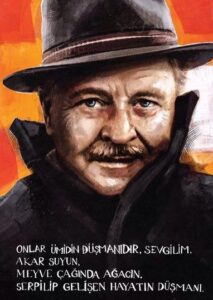
https://www.goodreads.com/work/quotes/213807-b-t-n-iirleri
Rick Steves Istanbul: With Ephesus & Cappadocia
$15.21 (as of 08/02/2026 22:15 GMT +03:00 - More infoProduct prices and availability are accurate as of the date/time indicated and are subject to change. Any price and availability information displayed on [relevant Amazon Site(s), as applicable] at the time of purchase will apply to the purchase of this product.)Lonely Planet Pocket Istanbul (Pocket Guide)
$11.34 (as of 08/02/2026 22:15 GMT +03:00 - More infoProduct prices and availability are accurate as of the date/time indicated and are subject to change. Any price and availability information displayed on [relevant Amazon Site(s), as applicable] at the time of purchase will apply to the purchase of this product.)To The City: Life and Death Along the Ancient Walls of Istanbul
$10.01 (as of 08/02/2026 22:15 GMT +03:00 - More infoProduct prices and availability are accurate as of the date/time indicated and are subject to change. Any price and availability information displayed on [relevant Amazon Site(s), as applicable] at the time of purchase will apply to the purchase of this product.)Istanbul Travel Guide 2026: The Updated Companion to Experience Turkey's Best-Kept Secrets with Practical Itineraries, Detailed Maps, Bucket Hacks & Hidden Gems
$16.99 (as of 08/02/2026 22:15 GMT +03:00 - More infoProduct prices and availability are accurate as of the date/time indicated and are subject to change. Any price and availability information displayed on [relevant Amazon Site(s), as applicable] at the time of purchase will apply to the purchase of this product.)Blue Guide Istanbul
$9.99 (as of 08/02/2026 22:15 GMT +03:00 - More infoProduct prices and availability are accurate as of the date/time indicated and are subject to change. Any price and availability information displayed on [relevant Amazon Site(s), as applicable] at the time of purchase will apply to the purchase of this product.)Estambul: Guia Para Visitar la Ciudad Entre Dos Continentes (Spanish Edition)
$12.00 (as of 08/02/2026 22:15 GMT +03:00 - More infoProduct prices and availability are accurate as of the date/time indicated and are subject to change. Any price and availability information displayed on [relevant Amazon Site(s), as applicable] at the time of purchase will apply to the purchase of this product.)Turkish Urban Dictionary: 500 Slang Words & Phrases to Speak Like a Local in Turkey (Urban Slang Dictionary)
$17.90 (as of 08/02/2026 22:15 GMT +03:00 - More infoProduct prices and availability are accurate as of the date/time indicated and are subject to change. Any price and availability information displayed on [relevant Amazon Site(s), as applicable] at the time of purchase will apply to the purchase of this product.)Time Out Istanbul
$2.20 (as of 08/02/2026 22:15 GMT +03:00 - More infoProduct prices and availability are accurate as of the date/time indicated and are subject to change. Any price and availability information displayed on [relevant Amazon Site(s), as applicable] at the time of purchase will apply to the purchase of this product.)Crescent and Star: Turkey Between Two Worlds
$6.49 (as of 08/02/2026 22:15 GMT +03:00 - More infoProduct prices and availability are accurate as of the date/time indicated and are subject to change. Any price and availability information displayed on [relevant Amazon Site(s), as applicable] at the time of purchase will apply to the purchase of this product.)Istanbul Travel Guide 2026: Your All-in-One Resource: Explore Must-See Attractions, Curated Itineraries, Budget-Friendly and Accessible Stays, Up-to-Date Essentials, and Sustainable Travel Tips
$15.99 (as of 08/02/2026 22:15 GMT +03:00 - More infoProduct prices and availability are accurate as of the date/time indicated and are subject to change. Any price and availability information displayed on [relevant Amazon Site(s), as applicable] at the time of purchase will apply to the purchase of this product.)Collins Turkish Phrasebook and Dictionary Gem Edition (Collins Gem)
$0.99 (as of 08/02/2026 22:22 GMT +03:00 - More infoProduct prices and availability are accurate as of the date/time indicated and are subject to change. Any price and availability information displayed on [relevant Amazon Site(s), as applicable] at the time of purchase will apply to the purchase of this product.)Lonely Planet Pocket Istanbul (Pocket Guide)
$11.34 (as of 08/02/2026 22:22 GMT +03:00 - More infoProduct prices and availability are accurate as of the date/time indicated and are subject to change. Any price and availability information displayed on [relevant Amazon Site(s), as applicable] at the time of purchase will apply to the purchase of this product.)A Guide to Biblical Sites in Greece and Turkey
$15.61 (as of 08/02/2026 22:22 GMT +03:00 - More infoProduct prices and availability are accurate as of the date/time indicated and are subject to change. Any price and availability information displayed on [relevant Amazon Site(s), as applicable] at the time of purchase will apply to the purchase of this product.)Wonders of Istanbul: A Photo Collection of the City’s Most Beautiful Places to See – A Stunning Coffee Table Travel Photobook
$12.99 (as of 08/02/2026 22:22 GMT +03:00 - More infoProduct prices and availability are accurate as of the date/time indicated and are subject to change. Any price and availability information displayed on [relevant Amazon Site(s), as applicable] at the time of purchase will apply to the purchase of this product.)Türkiye (Turkey) Map (National Geographic Adventure Map, 3018)
$11.87 (as of 08/02/2026 22:22 GMT +03:00 - More infoProduct prices and availability are accurate as of the date/time indicated and are subject to change. Any price and availability information displayed on [relevant Amazon Site(s), as applicable] at the time of purchase will apply to the purchase of this product.)Istanbul: The Imperial City
$6.39 (as of 08/02/2026 22:22 GMT +03:00 - More infoProduct prices and availability are accurate as of the date/time indicated and are subject to change. Any price and availability information displayed on [relevant Amazon Site(s), as applicable] at the time of purchase will apply to the purchase of this product.)Lonely Planet Turkiye (Travel Guide)
$12.77 (as of 08/02/2026 22:22 GMT +03:00 - More infoProduct prices and availability are accurate as of the date/time indicated and are subject to change. Any price and availability information displayed on [relevant Amazon Site(s), as applicable] at the time of purchase will apply to the purchase of this product.)The Amazing Mrs. Pollifax (Mrs. Pollifax Series Book 2)
$5.99 (as of 08/02/2026 22:22 GMT +03:00 - More infoProduct prices and availability are accurate as of the date/time indicated and are subject to change. Any price and availability information displayed on [relevant Amazon Site(s), as applicable] at the time of purchase will apply to the purchase of this product.)Lonely Planet Istanbul (Travel Guide)
$5.98 (as of 08/02/2026 22:22 GMT +03:00 - More infoProduct prices and availability are accurate as of the date/time indicated and are subject to change. Any price and availability information displayed on [relevant Amazon Site(s), as applicable] at the time of purchase will apply to the purchase of this product.)Crescent and Star: Turkey Between Two Worlds
$6.49 (as of 08/02/2026 22:22 GMT +03:00 - More infoProduct prices and availability are accurate as of the date/time indicated and are subject to change. Any price and availability information displayed on [relevant Amazon Site(s), as applicable] at the time of purchase will apply to the purchase of this product.)Turkish Literature: Authors: Yaşar Kemal
WORKS:
COLLECTION: Ağıtlar I (Ballads I, under the name of Kemal Sadık Göğçeli, 1943), Gökyüzü Mavi Kaldı (The Sky Remained Blue, a selection of folklore, with Sabahattin Eyuboğlu, 1978), Ağıtlar (Ballads, 1992).
SHORT STORY: Sarı Sıcak (Yellow Heat, 1952), Teneke (Tinplate, a long story, 1955), Bütün Hikâyeler (Collected Short Stories, 1962).
NOVEL: İnce Memed I (Memed, My Hawk, 1955), Ortadirek (Middle Class, The Wind from the Plain: Volume I, 1955), Yer Demir Gök Bakır (Iron Earth, Copper Sky, The Wind from the Plain: Volume II, 1963), Üç Anadolu Efsanesi (Three Anatolian Legends, 1967), Ölmez Otu (The Undying Grass, The Wind from the Plain: Volume III, 1968), İnce Memed II (Memed, My Hawk II, 1969), Ağrıdağı Efsanesi (The Legend of Mount Ararat, 1970), Binboğalar Efsanesi (The Legend of the Thousand Bulls, 1971), Çakırcalı Efe (The Life Stories of the Famous Bandit Çakırcalı, 1972), Demirciler Çarşısı Cinayeti (Murder in the Blacksmith’s Market, The Lords of Akçasaz : Part I, 1973), Yusufçuk Yusuf (Yusuf, Little Yusuf, The Lords of Akçasaz : Volume II, 1975), Al Gözlüm Seyreyle Salih (The Saga of a Seagull, 1976), Yılanı Öldürseler (To Crush the Serpent, 1976), Kuşlar da Gitti (The Birds Have Also Gone: Long Stories, 1978), Deniz Küstü (The Sea Was Offended, 1978), Yağmurcuk Kuşu (The Rain Bird, Little Nobody : Volume I, 1980), Hüyükteki Nar Ağacı (The Pomegranate on the Knoll, 1982), İnce Memed III (Memed , My Hawk III, 1984), Kale Kapısı (The Castle Gates, Little Nobody: Volume II, 1985), İnce Memed IV (Memed, My Hawk IV, 1987), Kanın Sesi (The Voice of Blood, Little Nobody : Volume III, 1991), Karıncanın Su İçtiği – Bir Ada Hikâyesi 2 (Ant Drinking Water, An Island Story 2, 2002), Tanyeri Horozları – Bir Ada Hikâyesi 3 (Roosters of the Dawn, An Island Story 3, 2002).
INTERVIEW: Yanan Ormanlarda 50 Gün (Fifty Days in the Burning Forests, 1955), Çukurova Yana Yana (While Çukurova Burns, 1955), Peri Bacaları (The Fairy Chimneys, 1957), Bu Diyar Baştan Başa (Collected Interviews, 1971), Bir Bulut Kaynıyor (Collected Interviews, 1974), Allah’ın Askerleri (The Soldiers of God, 1978), Alain Bosquet ile Konuşmalar (Speeches with Alain Bosquet, translated by Altan Gökalp, 1992).
ESSAY: Taş Çatlasa (At Most, 1961), Baldaki Tuz (The Salt in the Honey, 1974), Ağacın Çürüğü (The Rotting Tree, 1980), Sarı Defterdekiler – Folklor Denemeleri (Contents of the Yellow Notebook, folkloric essays, ed. Alpay Kabacalı, 2002).
CHILDREN’S LITERATURE: Filler Sultanı ile Kırmızı Sakallı Topal Karınca (The Sultan of the Elephants and the Red-Bearded Crippled Ant, 1977).
“The human race that will be friend or foe, who can be friend or foe to the end, to the root, is extinct. Those who live like grass, who buy five and sell to him, can be friends, they are soaked to the bone, they can be enemies to the death.”
― Yaşar Kemal, The Demirciler Çarşısı Cinayeti
“You cannot be resurrected once without dying a thousand times in these mountains.”
― Yaşar Kemal, İnce Memed 4
“The birds are gone too,” said Mahmut.
We never spoke after that. The birds are gone too, and with the birds… What will happen, the birds are gone too.”
― Yaşar Kemal, Kuşlar da Gitti
“Man occupies not as much space as his body in the universe, but as much as his heart.”
― Yasar Kemal
“Those good people got on those beautiful horses and left.”
― Yaşar Kemal, The Demirciler Çarşısı Cinayeti
“Look at me, son, the strength of the lie is not the weakness of the truth. The lie has formed an organization, the truth is alone. There is a tradition of lying, your truth needs to be recreated every day. Every day it has to bloom like a dawn flower. You will be defeated.”
― Yasar Kemal
“I, myself, cannot leave this city. All my means have been cut off. But I can’t be happy in such a world either. I dream, I dream. I dream of a world with light, joy, flowers, where no one exploits anyone, where no one fears or suspects anyone, and where no one is hostile towards anyone. A world where no one grinds their teeth… I consider myself a man with a generous heart. This is enough for me, even this much makes me happy.”
― Yasar Kemal
“Here it is next year, in the place of that copper-colored thorn, ugly apartments and villas will rise that you can’t look at without getting muddy. Creatures who have forgotten their humanity, who live on their streets only to show off to each other, to make money, money, only money, will show off. Cars will enter here, crushing people on the London asphalt at a distance of one hundred and fifty, two hundred kilometers… Maybe the birds will come here with a very deep, ancient instinct, on top of that great plane tree that will have been cut by then, on the sky, they will pause for a moment, look for something, try to remember something, concrete They will swarm over the heaps of houses, unable to find a place to rest, and go away like a distant grief.”
― Yasar Kemal
“No matter how narrow the field of vision, the human imagination is wide. Even a person who has never been anywhere other than Değirmenoluk village has a wide imagination. It can extend beyond the stars. If it can’t find anywhere, it goes to the back of Kafdag. If he doesn’t, the place where he lives in his dreams becomes different. It becomes paradise. Now, right now dreams are raging under your sleep. In this joke, in this grim village of Değirmenoluk, changed worlds are living.”
― Yasar Kemal, Ince Memed
“Those who hide within themselves, do not see the tip of their noses. They hid, they were buried in their own darkness. Will they see the tiny, shiny, fluttering birds in the cage waiting to be rescued in front of the New Mosque, to escape and fly over that polluted Bosphorus? They are riding on each other’s backs, going to each other’s darkness, to the apocalypse.”
― Yasar Kemal
“What do you think, my son Memed, do you think İnce Memed will end? Inside every person, there is a compulsive wolf, an İnce Memedlik, and a Köroğluluk wolf. Köroğlu left and İnce Memed came. As long as this wolf is in humankind, mankind will not be defeated no matter what. You are the wolf in mankind, whatever you are, wherever you go. If this wolf in human beings disappears, then humanity will cease to be humanity.”
― Yaşar Kemal, İnce Memed 3
“If we blunt the sense of justice in people, people will have no respect for people. When people have no trust or respect for people, humanity loses a lot at some point and life becomes ugly.”
― Yaşar Kemal, İnce Memed 3
“Those who crush each other in Taksim area, those who spit and blow their noses saying that it was right among so many people, those who rub their snot on tree trunks, those who have sick faces, those with soggy paints, those who have a thousand pieces of skin falling off their faces, those who do not smile, those who do not smile, like enemies, will eat each other. Those who look as if they are going to dig each other’s eyes, are afraid, ashamed, are these, those who are afraid, those who say, me, me, these? The birds are gone too… With the birds that are gone…”
― Yaşar Kemal
“This is the world,” he said. “The water fills the ditch. People are born and die, the sun rises and sets. Trees grow and rot. The waters flow, the cloud clears. You kill the agha, the agha comes instead. You kill it again, it will come again.”
― Yaşar Kemal, İnce Memed 2
“Since that day, those who pass by the Küp Lake see Gülbahar sitting on the shore of the lake, with her long black hair flowing like light on her back, her head between her two hands, staring into the deep blue water. Every now and then, Ahmet appears in the waters of the lake, and Gülbahar opens his arms and walks towards Ahmet…..
The lake boils, Ahmet disappears. Gülbahar is wiped out and a small white bird comes and dips its wing into the deep blue of the water. And then the black shadow of a horse comes over the lake.
Every year, when the spring stops to flower, when the world is qualified, the shepherds of Mount Ararat come from all sides, throw their shutters on the copper soil of the lake and sit on it. They sit on the thousand-year-old soil of love. While their tanyers are shining, they pull their pipes from their waists and steal the anger and love of Mount Ararat. And as the day comes, a white bird comes…”
― Yaşar Kemal, The Ağrı Dağı Efsanesi
“Every age has its own way of mythmaking. Ancient Egypt had its myths, the Sumerians and the Assyrians, the Christians and the Muslims, the North and the South — the style of creating myths always varies. What myths are being created as a shelter even in the chaotic atmosphere of today! Until doomsday humanity will create these shelters. What else could people do when they come from one darkness and travel to another? And with so much deprivation? Man remains man so long as he dreams.”
― Yashar Kemal
“Loving only horses and the sea is not a skill. You won’t be able to get enough of caressing the world.”
― Yaşar Kemal, Tanyeri Horozları
“Not resisting oppression is infidelity,” he said. “It is disbelief not to protect the sustenance of the child, the homeland of the father, and to leave it and fall into the hands of a foreign country. Not resisting oppression is being a partner in oppression. To be afraid, to be intimidated by fear is infidelity.”
― Yaşar Kemal, İnce Memed 2
“On the stairs… Like this until morning… I want to sleep, like this… I can’t sleep.”
― Yaşar Kemal, Allah’ın Askerleri
“We came from Khorasan, on horses… we have been through a lot. We did not touch women or children. We did not touch the loves and the hearts. We didn’t hurt their mother. This is our tradition.”
― Yasar Kemal
“Lying is organized. Correct one. It wouldn’t be right if it wasn’t defeated.”
― Yasar Kemal
“Which day did we see it was not evening?”
― Yasar Kemal
“There is, of course there is, okay? This is humanity. It is layered, its strongest, most beautiful jewel is at the bottom, the more it peels off humanity, the more it peels off its shell, one layer, two, three, four, five layers, humanity gets brighter and more beautiful. The ugly is the top crust of humanity. The man who is a man constantly tries to peel off both his own shell and the shell of humanity. The more you rob, the brighter it gets, the more you rob…”
― Yaşar Kemal, Kuşlar da Gitti
“The boy was shrunken with his hands in his bosom. The old man came and sat next to the child. The thick glow of the hearth cast strange shadows behind them. By looking at these shadows, the man could tell what was going through the boy’s head. And the old man stared at the shadows, which did not stay in one place for a long time, but shifted according to the winds.”
― Yaşar Kemal, İnce Memed
“Bandit means bed. Their beds are the life of the bandit. The bandit who reveals his bed does not live. This is your head bed. You will never set foot here again
Page: 32”
― Yaşar Kemal, Çakırcalı Efe
“A song is heard… It is different in the night, it is different in the daytime. If the child says it in a different way, if the woman says it… It will be different if the young say it, if the old say it… It is different if it is said on the mountain, it is different in the plain, forest, sea. It is always different. It is different in the morning, at noon, in the afternoon, and in the evening.”
― Yasar Kemal, Ince Memed
“Look at my garden, where did I bring flowers, trees and bushes from where I didn’t plant them, isn’t this a corner of the garden of paradise? Who knows who will live in my beautiful house, who knows how they will break the doors and windows, how they will uproot the trees of the garden, how they will trample their flowers.”
― Yaşar Kemal, The Fırat suyu kan akıyor baksana
“Man is not a thinking animal, but an animal that writes letters.”
― Yasar Kemal, Teneke
“You are right. You’re right, Cabbar. But come ask me. Ask me inside. My heart is held by two hands, and my father often. I can’t. I can’t help but see the hat. If I don’t see it, I will die. I will die like this, I will die like this…”
― Yaşar Kemal
The Turkish Cookbook
$42.79 (as of 08/02/2026 22:15 GMT +03:00 - More infoProduct prices and availability are accurate as of the date/time indicated and are subject to change. Any price and availability information displayed on [relevant Amazon Site(s), as applicable] at the time of purchase will apply to the purchase of this product.)DK Eyewitness Travel Guide Istanbul (Eyewitness Travel Guides)
$10.20 (as of 08/02/2026 22:15 GMT +03:00 - More infoProduct prices and availability are accurate as of the date/time indicated and are subject to change. Any price and availability information displayed on [relevant Amazon Site(s), as applicable] at the time of purchase will apply to the purchase of this product.)The Rough Guide to Turkey (Travel Guide with eBook) (Rough Guide Main Series)
$13.64 (as of 08/02/2026 22:15 GMT +03:00 - More infoProduct prices and availability are accurate as of the date/time indicated and are subject to change. Any price and availability information displayed on [relevant Amazon Site(s), as applicable] at the time of purchase will apply to the purchase of this product.)Istanbul Travel Guide 2024: Eyewitness Travel Guide
$12.99 (as of 08/02/2026 22:15 GMT +03:00 - More infoProduct prices and availability are accurate as of the date/time indicated and are subject to change. Any price and availability information displayed on [relevant Amazon Site(s), as applicable] at the time of purchase will apply to the purchase of this product.)DK Top 10 Istanbul (Pocket Travel Guide)
$11.39 (as of 08/02/2026 22:15 GMT +03:00 - More infoProduct prices and availability are accurate as of the date/time indicated and are subject to change. Any price and availability information displayed on [relevant Amazon Site(s), as applicable] at the time of purchase will apply to the purchase of this product.)Lonely Planet Istanbul (Travel Guide)
$5.98 (as of 08/02/2026 22:15 GMT +03:00 - More infoProduct prices and availability are accurate as of the date/time indicated and are subject to change. Any price and availability information displayed on [relevant Amazon Site(s), as applicable] at the time of purchase will apply to the purchase of this product.)Lonely Planet Pocket Istanbul (Pocket Guide)
$11.34 (as of 08/02/2026 22:15 GMT +03:00 - More infoProduct prices and availability are accurate as of the date/time indicated and are subject to change. Any price and availability information displayed on [relevant Amazon Site(s), as applicable] at the time of purchase will apply to the purchase of this product.)Wonders of Istanbul: A Photo Collection of the City’s Most Beautiful Places to See – A Stunning Coffee Table Travel Photobook
$12.99 (as of 08/02/2026 22:15 GMT +03:00 - More infoProduct prices and availability are accurate as of the date/time indicated and are subject to change. Any price and availability information displayed on [relevant Amazon Site(s), as applicable] at the time of purchase will apply to the purchase of this product.)Wallpaper* City Guide Istanbul 2014
$11.95 (as of 08/02/2026 22:15 GMT +03:00 - More infoProduct prices and availability are accurate as of the date/time indicated and are subject to change. Any price and availability information displayed on [relevant Amazon Site(s), as applicable] at the time of purchase will apply to the purchase of this product.)Istanbul Travel Guide 2026: The Updated Companion to Experience Turkey's Best-Kept Secrets with Practical Itineraries, Detailed Maps, Bucket Hacks & Hidden Gems
$16.99 (as of 08/02/2026 22:15 GMT +03:00 - More infoProduct prices and availability are accurate as of the date/time indicated and are subject to change. Any price and availability information displayed on [relevant Amazon Site(s), as applicable] at the time of purchase will apply to the purchase of this product.)A Guide to Biblical Sites in Greece and Turkey
$15.61 (as of 08/02/2026 22:22 GMT +03:00 - More infoProduct prices and availability are accurate as of the date/time indicated and are subject to change. Any price and availability information displayed on [relevant Amazon Site(s), as applicable] at the time of purchase will apply to the purchase of this product.)Fodor's Essential Turkey (Full-color Travel Guide)
$3.38 (as of 08/02/2026 22:22 GMT +03:00 - More infoProduct prices and availability are accurate as of the date/time indicated and are subject to change. Any price and availability information displayed on [relevant Amazon Site(s), as applicable] at the time of purchase will apply to the purchase of this product.)Istanbul: City of Majesty at the Crossroads of the World
$5.92 (as of 08/02/2026 22:22 GMT +03:00 - More infoProduct prices and availability are accurate as of the date/time indicated and are subject to change. Any price and availability information displayed on [relevant Amazon Site(s), as applicable] at the time of purchase will apply to the purchase of this product.)Lonely Planet Pocket Istanbul (Pocket Guide)
$11.34 (as of 08/02/2026 22:22 GMT +03:00 - More infoProduct prices and availability are accurate as of the date/time indicated and are subject to change. Any price and availability information displayed on [relevant Amazon Site(s), as applicable] at the time of purchase will apply to the purchase of this product.)Ultimate Turkey Travel Guide: How Anyone Can Plan a Hassle Free Trip, Gather Deep and Historical and Cultural Insights, While Experiencing Lesser Known Destinations For an Authentic Experience
$9.99 (as of 08/02/2026 22:22 GMT +03:00 - More infoProduct prices and availability are accurate as of the date/time indicated and are subject to change. Any price and availability information displayed on [relevant Amazon Site(s), as applicable] at the time of purchase will apply to the purchase of this product.)Crescent and Star: Turkey Between Two Worlds
$6.49 (as of 08/02/2026 22:22 GMT +03:00 - More infoProduct prices and availability are accurate as of the date/time indicated and are subject to change. Any price and availability information displayed on [relevant Amazon Site(s), as applicable] at the time of purchase will apply to the purchase of this product.)The Amazing Mrs. Pollifax (Mrs. Pollifax Series Book 2)
$5.99 (as of 08/02/2026 22:22 GMT +03:00 - More infoProduct prices and availability are accurate as of the date/time indicated and are subject to change. Any price and availability information displayed on [relevant Amazon Site(s), as applicable] at the time of purchase will apply to the purchase of this product.)Rick Steves Istanbul: With Ephesus & Cappadocia
$15.21 (as of 08/02/2026 22:22 GMT +03:00 - More infoProduct prices and availability are accurate as of the date/time indicated and are subject to change. Any price and availability information displayed on [relevant Amazon Site(s), as applicable] at the time of purchase will apply to the purchase of this product.)Istanbul: Memories and the City (Vintage International)
$5.68 (as of 08/02/2026 22:22 GMT +03:00 - More infoProduct prices and availability are accurate as of the date/time indicated and are subject to change. Any price and availability information displayed on [relevant Amazon Site(s), as applicable] at the time of purchase will apply to the purchase of this product.)Istanbul: The Imperial City
$6.39 (as of 08/02/2026 22:22 GMT +03:00 - More infoProduct prices and availability are accurate as of the date/time indicated and are subject to change. Any price and availability information displayed on [relevant Amazon Site(s), as applicable] at the time of purchase will apply to the purchase of this product.)Turkish Literature: Authors: Orhan Kemal
Novelist (b. 15 September 1914, Ceyhan / Adana – d. 2 June 1970, Sofia / Bulgaria)
Orhan Kemal, (Mehmet Raşit Öğütçü) writer of short stories and novels was born in Adana in 1914 and died in Sofia in 1970.
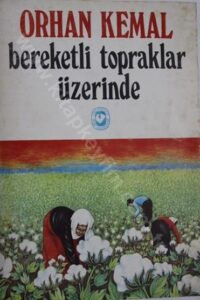
WORKS:
SHORT STORY: Ekmek Kavgası (Fight for Bread, 1949), Sarhoşlar (Drunkards, 1951), Çamaşırcının Kızı (The Laundress’ Daughter, 1952), 72. Koğuş (Ward 72, 1954), Grev (Strike, 1954), ArkaSokak (Back Street, 1956), Kardeş Payı (A Fair Share, 1957), Babil Kulesi (The Tower of Babel, 1957), Dünyada Harb Vardı (There Was War on Earth, 1963), İşsiz (Redundant, 1966), Önce Ekmek (Bread First, 1968), Küçükler ve Büyükler (The Little and the Great, 1971).
NOVEL: Baba Evi (My Father’s House, 1949), Avare Yıllar (Idle Years, 1959), Murtaza (Murtaza, 1952), Cemile (Cemile, 1952), Bereketli Topraklar Üzerinde (On Fertile Lands, 1954), Suçlu (Guilty, 1957), Devlet Kuşu (Windfall, 1958), Vukuat Var (There’s a Crime, 1959), Gâvurun Kızı (The Infidel’s Daughter, 1959), Küçücük (Very Little, 1969), Dünya Evi (Marriage, 1960), El Kızı (The Foreigner’s Daughter, 1960; filmed and broadcast in a television series, 1989), Hanımın Çiftliği (The Mistress’ Farm, 1961), Eskici ve Oğulları (The Junk Dealer and His Sons, 1962; later published with the title Eskici Dükkânı – The Junk Shop), Gurbet Kuşları (Birds of Foreign Lands, 1962), Sokakların Çocuğu (Kid of the Streets, 1963), Bir Filiz Vardı (There Was a Filiz, 1965), Müfettişler Müfettişi (Inspector of the Inspectors, 1966), Yalancı Dünya (False World, 1966), Evlerden Biri (One of the Houses, 1966), Arkadaş Islıkları (Friend’s Whistles, 1968), Sokaklarda Bir Kız (A Girl on the Streets, 1968), Üç Kağıtçı (Cheater, 1969), Kötü Yol (Evil Way, 1969), Kaçak (Fugitive, 1970), Tersine Dünya (Reversing World, 1986).
PLAY: İspinozlar (Snowbirds, staged 1964; published 1965, also staged with the title Yalova Kaymakamı – The Head Official of Yalova), 72. Koğuş (Ward 72) Bekçi Murtaza (Murtaza the Watchman) Eskici Dükkânı (The Junk Shop) and Kardeş Payı (A Fair Share) were adapted for the stage and performed at theatres in Ankara between the years 1967-71.
AUTOBIOGRAPHY- MEMOIR: Nazım Hikmet’le Üç Buçuk Yıl (Three and a Half Years With Nazım Hikmet, 1965), Senaryo Tekniği ve Senaryoculuğumuzla İlgili Notlar (Technique of Script Writing and Notes on Our Script Writing, 1963), İstanbul’dan Çizgiler (Lines from İstanbul, 1971).
JOURNAL-POETRY: Yazmak Doludizgin (Writing at Full Speed, journals, poems, 2002).
“I think to die is to live in an undesirable world. By dying twenty-four times every twenty-four hours.”
― Orhan Kemal
“Everybody giggles gum, but gypsy girl enjoys it”
― Orhan Kemal
“72. As in all prisons, the ward was the poorest ward of the prison, as it was the poorest. The people of this place are worms that have stood up.”
― Orhan Kemal, 72.Koğuş
“I would give my life for the captain. Everyone has their own honor!
Terrible looked at him:
“Is it edible?”
“Of course he has the honor. If we become Adam’s father, God is this friend…”
― Orhan Kemal, 72.Koğuş
“forty-five to fate”
― Orhan Kemal
“They steal the prophet from Allah’s pocket. Once they get used to it, it’s over. Your heart is already pudding, they’ve bent their necks and you can’t stand crying. Do you feel sorry for Allah’s mercy?”
― Orhan Kemal, 72.Koğuş
“Spring has come again, then summer. The sun, the owner of the orphans, came just in time.”
― Orhan Kemal
“Everyone chews gum, but the gypsy girl enjoys it.”
― Orhan Kemal, Avare Yıllar
“Suddenly we found ourselves in revolt, or so it seemed to me. People with felt hats and pompons are running around, rubbing the ground, ‘We don’t want it, we don’t want this government!’ they were shouting. If anyone asked, they had strictly instructed me to say that I was the coal miner’s son. My grandmother had hidden all my father’s books, papers, photographs, swords, rifles, or rather, everything that belonged to my father in Ankara, under the cotton of the beds, in the attic. They said that the bullets fired from Alaettin hill broke the windows of the upper floor of our house and went to the Armenian school, and the bullets fired from the Armenian school went through the upper floor windows of our house and went to the Alaettin hill. We could see heads with coarse moustaches in the windows of the school, and we slept all day and all night on the stairs of the lower floor. One day we heard thatThe rebels tied the governor to the barn. ‘We want sharia, we don’t want this ignorant government, we don’t want atheists, we want sharia!’ We heard screams drifting and the incessant gunfire. Doors were broken, people were being strangled.
Days and days passed… ‘We do not want, we do not want, we do not want!’ Their voices resounded in the streets and one day, screams, gunshots, and the news ‘The National Forces were coming’ came out lightning. Involuntarily, the cries ceased, the rough-booted feet fled through the streets, the gunfire ceased. One sunny morning, my brother and I mingled with the people in front of the house, handkerchiefs in our hands. The hooves of strong horses with foaming mouths covered everything. A wild applause… Old women, children, young women, girls were crying with joy, the crowd was shaking with shouts of joy. Horsemen were passing by, horsemen… Under the bright sun, horsemen with their gourds, caps, and mustaches were passing. Then the unwilling ones… The sharia bouncers, with their hands tied behind their backs, with trouser legs and felt hats… Then the trolleys… In the trolleys,bloody corpses cut off from their necks… That day I cried so much that my voice was hoarse and I fell ill. In front of the Armenian school, the children began to play a kind of mortise with cartridge cases. The streets were filled with empty cartridge cases…”
― Orhan Kemal, Baba Evi
“What and what was my father? I do not know. With his silver-knotted cane, his yellow purse, his red wicker fez, and his eyebrows that always frown when he looks at me, he was just a big-bodied fear to me. His frowning, jet-black eyebrows… My father was as big and strong as a giant!”
― Orhan Kemal, Baba Evi
“Tell me,” my father roared again, how dare you do this? Didn’t you think, didn’t you think that my honor and dignity are at stake? What if tomorrow they take you and imprison you? What if they send not only you but also me to the courts with you? What ignorance is this, my Lord, what an inconsistency! How to break the seal of the government, how to dare!
He divorced my mother that night and sent her to my uncle’s house early in the morning. That very evening, my grandmother and my little aunt came to the farm, and they both had a look inside the house from both sides. Then my grandmother tucked her skirts around her waist, giving orders to the maids to have the house thoroughly washed. They were content with their world. They were unleashing their Vara yoga laughter.
— Oh, what a scumbag, what a scumbag, my Lord! Such a woman per enemy!
Or:
— To be honest, my son Eyüp had patience. It is not worth living with this scruffy wife.
— Your wife, they said, united with the locals and emptied the sub-house one-mile… The town is shaking, the police are going to raid it tomorrow, just so you know!
My mother had already forgiven my father:
– He said, “Let him beat him, it’s a man… It’s not his fault, it’s the other person whose neck is cut off… If he beats me after understanding and listening, what should I do, then I’ll accept my punishment.”
― Orhan Kemal, Baba Evi
“Fort is on it,” said Veli. “I own this middleman’s shop,” he said.
“Did he say mine?”
“It’s mine, he said, for the sake of writing, liar. I told you the other day, Haji Emmi, he has the robbery, he has the lie, he has the dishonor. In the past, the agha said: ‘Veli, my son’ he said, ‘my eyes do not drink water from this Gafur’. ‘You are my special man. Oh my son, keep an eye on the shop while I’m gone!”
Hadji chuckled:
“I told you the other day, veli, run to the rabbit, keep it in writing, they say. Don’t listen. Hi, mi, di, don’t connect with bold sidk. Why are you dire, I’ve been here since Mustafa Kemal Pasha corrupted the Greek, I’m a bird of exile. I’ve seen so many great Hüseyin Efendis. Whether it’s a city man or a female tongue me, you won’t believe it!”
― Orhan Kemal, Gurbet Kuşları

